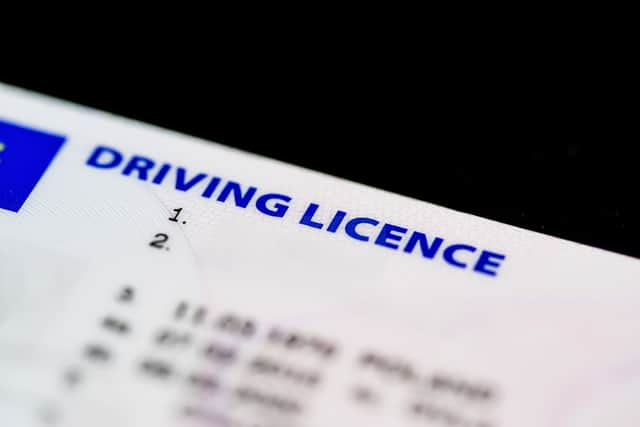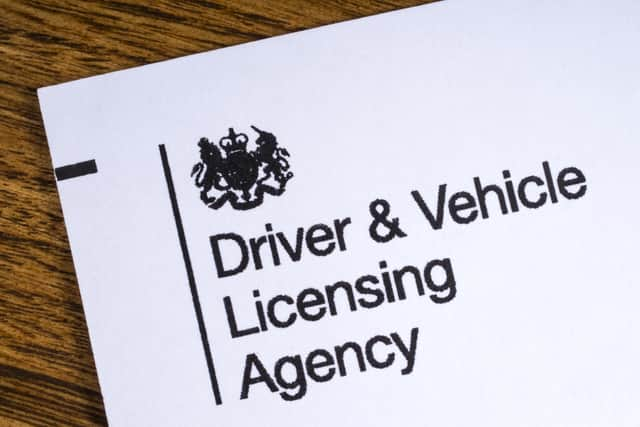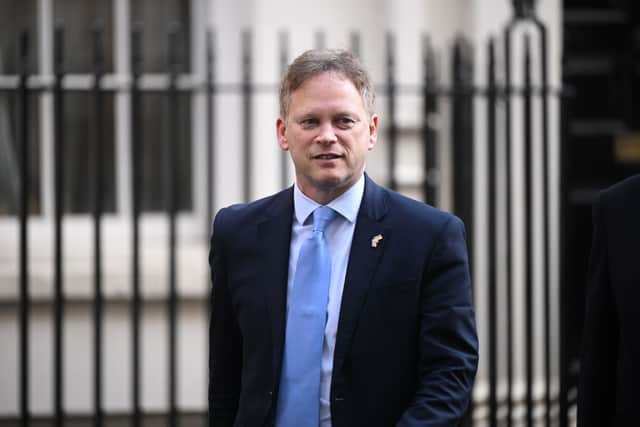DVLA staff ‘bragged they were paid to watch Netflix’ as drivers faced massive application backlog


DVLA staff boasted of being paid to watch TV while drivers faced waits of up to a year to have their paperwork processed, it has been claimed.
An investigation by The Times alleges that hundreds of staff were put on special paid leave for extended periods during the pandemic with no expectation that they would do any work.
Advertisement
Hide AdAdvertisement
Hide AdIt claims that employees boasted of being kept on full pay while being able to relax at home watching Netflix and that other staff were left “demoralised” after discovering colleagues supposedly on medical leave were “out and about mingling with others and going on holiday”.
Since the first lockdown, drivers have faced long waits for items such as new driving licences and registration documents for newly purchased vehicles. One driver told the Times he had waited more than 13 months for his licence to be renewed while another said he had been waiting since last May for his to be renewed after medical checks.


At its peak in September 2021, the backlog of applications was 1.6 million cases. This has now fallen to 850,000 - still more than double the usual number of 400,000 live cases with which the agency would be dealing.
The DVLA blames the backlog on the impact of lockdown and repeated strike action by some staff but the Times investigation claims IT issues and staff exploiting paid leave and work-from-home systems have made the issue worse.
During the first lockdown, most of the agency’s 6,000 staff were sent home, with around 1,400 working from home and another 3,500 placed on paid leave. The Times alleges that by July 2020, when lockdown ended almost 2,000 staff were still on special paid leave while others returned to offices or continued to work from home.
The special paid leave was granted to staff who couldn’t work from home and who reported health conditions that classed them as too vulnerable to be on site; were isolating because of Covid contacts or had caring responsibilities. It did not apply to staff who had tested positive for Covid.
However, a reporter who went undercover in a DVLA call centre met staff who boasted of avoiding work or said they could not work because IT flaws meant they didn’t have access to key systems. One told the reporter: “My manager would be messaging me, can you do this? and I’d be like, you’re interrupting my series on Netflix.”
The reporter also said that they were told by bosses to lie to drivers about the waiting times for applications - telling them to expect a wait of six to 10 weeks while the reality was much longer.
Advertisement
Hide AdAdvertisement
Hide AdThe DVLA refuted the claims and said they were “not representative of the hardworking culture in DVLA”.
It also denied that staff were told to mislead drivers over waiting times or that staff could not work due to IT issues.


A spokesperson for the agency said: "We take the allegations made extremely seriously and are urgently investigating. These claims are not representative of the hardworking culture in DVLA, nor are they a true reflection of the 6,000 plus staff who have worked incredibly hard to help keep the country moving throughout the pandemic.
"It’s not true to suggest that DVLA has misled callers on timescales for applications and we openly publish the current waiting times on the most popular transactions. The six to ten week processing time was correct at the time it was issued. More complex transactions, for example where medical investigations are needed, are taking longer.”
They added that it was “nonsense” to claim that substandard IT systems had contributed to the problem, arguing that processing of sensitive personal data had to be done on-site, not remotely and that the issue was to do with the volume of paper applications the agency handled and the impact of strike action.
The DVLA receives an estimated 60,000 pieces of mail a day but with just a third of staff on-site to process these, drivers are facing extended delays in receiving new documents, including licences and vehicle registration documents.
The agency has also been hit by repeated industrial action over union claims that the Swansea offices are not Covid safe. As many as 1,000 members of the PCS union took part in strike action over 58 days in 2021 amid claims that workers were being put at risk - a claim the DVLA refutes.
The spokesperson added that staffing levels on-site were increasing and the backlog was reducing “rapidly” as a result of staff returning, the recruitment of more staff and the extension of overtime working.
Advertisement
Hide AdAdvertisement
Hide AdThe DVLA said processing times for vehicle paper transactions were back to normal and waiting times for “the vast majority” of driver applications would return to normal by the end of May. It added that waiting times for online applications were not affected by the backlog.
Transport Secretary Grant Shapps called the allegations “deeply concerning” and has ordered a “thorough investigation” to get quick answers from DVLA bosses.
Comments
Want to join the conversation? Please or to comment on this article.
